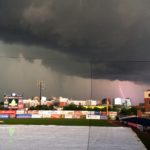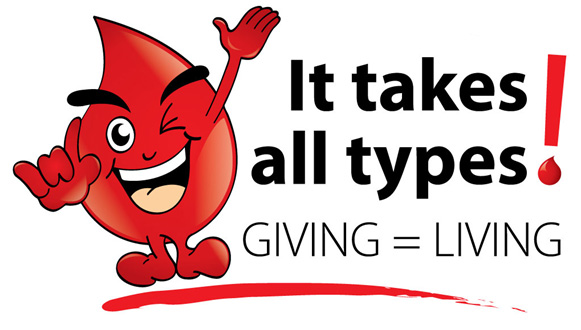 A Couple of Reasons To Let the Snow Melt Naturally
A Couple of Reasons To Let the Snow Melt Naturally
“Ice Melt” Is Killing Your Concrete
Rock salt is seen as a savior to pedestrians and drivers traversing this North Delaware tundra – better known as “sidewalks”and “roads” in warmer months. But just as you may get frustrated with a driver who won’t stop to let you walk across the street in the rain, or with “Pokey” moseying across the boulevard while you’re idling in your car late for that meeting, there is a flip side to your safe travels this time of year.
Concrete Degradation
 Basically, this degradation happens when concrete – that stuff your sidewalks, steps, walkways, and driveways are made out of – experience structural failure. One of the main causes of this failure is moisture. And while drinking four pints of water a day is highly recommended by us here, at Borsello, pouring four pints of water onto your front steps in the middle of winter is not. So here are a couple things to know about concrete, moisture, and ice.
Basically, this degradation happens when concrete – that stuff your sidewalks, steps, walkways, and driveways are made out of – experience structural failure. One of the main causes of this failure is moisture. And while drinking four pints of water a day is highly recommended by us here, at Borsello, pouring four pints of water onto your front steps in the middle of winter is not. So here are a couple things to know about concrete, moisture, and ice.
Concrete, while appearing very solid, is in fact extremely porous. It’s got a lot of little holes in it! Which is usually a good thing – this allows room for the concrete to expand and contract as the temperature around it vacillates between -15 and 110 degrees F throughout the year.
When rain comes in contact with your concrete, most of it harmlessly runs off your steps and walkways into the grass and makes your flower beds happy. Some of it, however, makes its way into the concrete itself but doesn’t do significant damage.
 But now it’s winter, and we had the ice storm yesterday (with another one on the way). You were a good homeowner and spread a healthy dose of ice melt, kitty litter, chemical spray, margarita salt (our personal favorite) – whatever your flavor – all over your stairs, walks and drive. Good to go, right? Not so fast, think about it, you just dropped all that salt to melt the snow. But, what happens when that snow melts? It turns to water. So, instead of safely making its way to your petunias, this water is trapped by all that rock salt, or “ice melt” product you just dropped. Rock salt is made up mostly of sodium chloride (NaCl), better known to you and me as salt. Salt absorbs water. While there is no real alternative for melting the snow, sand or fine gravel will provide traction and they are a safe option that that won’t cause damage to your hard-scape.
But now it’s winter, and we had the ice storm yesterday (with another one on the way). You were a good homeowner and spread a healthy dose of ice melt, kitty litter, chemical spray, margarita salt (our personal favorite) – whatever your flavor – all over your stairs, walks and drive. Good to go, right? Not so fast, think about it, you just dropped all that salt to melt the snow. But, what happens when that snow melts? It turns to water. So, instead of safely making its way to your petunias, this water is trapped by all that rock salt, or “ice melt” product you just dropped. Rock salt is made up mostly of sodium chloride (NaCl), better known to you and me as salt. Salt absorbs water. While there is no real alternative for melting the snow, sand or fine gravel will provide traction and they are a safe option that that won’t cause damage to your hard-scape.
Snow Weighing Down Your Branches?
 No doubt we all either have, or have seen the burden of recent snows on our trees and shrubs. Many shrubs, particularly evergreens, are laying on the ground, or have their form split open from the weight of the snow. It is tempting to knock the snow off and liberate these poor shrubs but often to do so is more damaging than waiting patiently for spring. Limbs can be cracked and/or broken, foliage damaged, etc. Instead, let the snow melt naturally, then assess the damage.
No doubt we all either have, or have seen the burden of recent snows on our trees and shrubs. Many shrubs, particularly evergreens, are laying on the ground, or have their form split open from the weight of the snow. It is tempting to knock the snow off and liberate these poor shrubs but often to do so is more damaging than waiting patiently for spring. Limbs can be cracked and/or broken, foliage damaged, etc. Instead, let the snow melt naturally, then assess the damage.
About Borsello Landscaping – Landscape Design Company
Borsello Landscaping is a full service lawn and landscaping company that has served the Delaware, Maryland and Pennsylvania area for more than a decade. We provide high quality design and installation of a full range of landscaping and exterior living services. We pride ourselves on delivering a high quality product, and our customer feedback is uniformly positive.
We differentiate ourselves from the competition by emphasizing and embracing the artistic and creative talent that is needed to create high-impact, visually appealing exteriors. We hire talented and creative landscape designers capable of imagining the most exquisite home solutions, as well as knowledgeable technicians skilled in executing the designs. We bring together the art and science of landscaping in a way that creates maximum value for our customers.









Leave A Comment